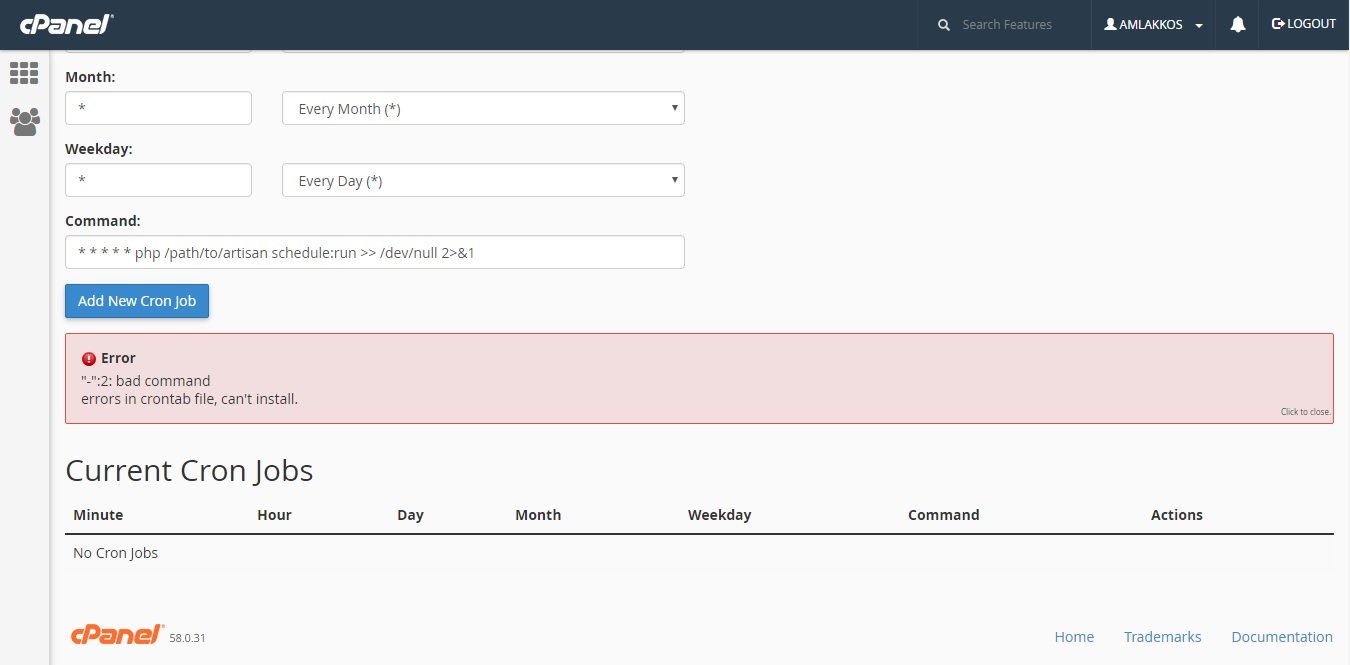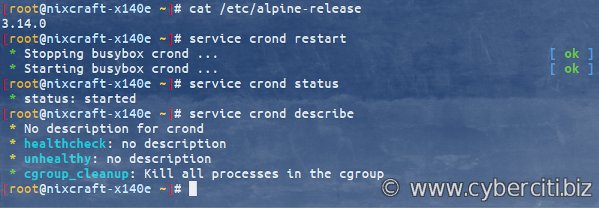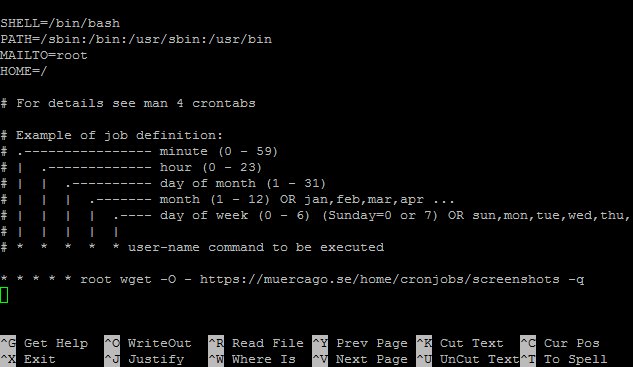Are you looking for a solution to automate tasks at specific intervals in your Golang application? Look no further! The answer lies in using a Golang cronjob. With a Golang cronjob, you can effortlessly schedule and execute recurring tasks, making your application more efficient and productive. In this article, we will explore the power of Golang cronjobs and how they can simplify your workflow. So, let’s dive right in and discover how you can incorporate this handy tool into your project.
Golang Cronjob: A Comprehensive Guide
Introduction to Golang Cronjob
Golang, also known as Go, is an open-source programming language developed by Google. It was designed to be efficient, reliable, and easy to use. One of the key features of Go is its built-in support for scheduling and executing recurring tasks, which is achieved through the use of cronjobs.
In this comprehensive guide, we will delve into the world of Golang cronjobs. We will explore what cronjobs are, how they work, and how Go allows developers to leverage the power of cronjobs to automate tasks. Whether you are a beginner or an experienced programmer, this guide will provide you with everything you need to know about Golang cronjobs.
Understanding Cronjobs
Cron is a time-based job scheduler in Unix-like operating systems. It allows users to schedule commands or scripts to run periodically at fixed times, dates, or intervals. Cronjobs are essential for automating recurring tasks, such as running backups, sending periodic reports, or performing maintenance activities.
In Go, the cron package provides a convenient way to create and manage cronjobs. The package allows you to define a schedule using the cron expressions format, which consists of five fields representing the minute, hour, day of the month, month, and day of the week.
Here’s an example of a cron expression:
“`
0 0 * * *
“`
This expression represents a cronjob that is scheduled to run at midnight every day.
Setting Up a Golang Cronjob
To use the cron package in Go, you need to import it into your project. You can do this by adding the following import statement at the beginning of your Go file:
“`go
import “github.com/robfig/cron”
“`
Once you have imported the cron package, you can start creating and managing your cronjobs.
To create a new cronjob, you need to define a schedule and the task you want to execute. You can define the schedule using the cron expression format we discussed earlier, and the task can be any valid Go function or method.
Let’s say we want to create a cronjob that prints “Hello, World!” every minute. Here’s how we can do it:
“`go
func main() {
c := cron.New()
c.AddFunc(“* * * * *”, func() {
fmt.Println(“Hello, World!”)
})
c.Start()
// Keep the program running
select {}
}
“`
In this example, we create a new cronjob using the `cron.New()` function. We then add a function to the cronjob using the `AddFunc()` method, which takes a schedule and a function as arguments. Finally, we start the cronjob by calling the `Start()` method and keep the program running using the `select {}` statement.
Managing Cronjobs
The cron package provides various methods to manage cronjobs. Here are some of the commonly used methods:
- AddFunc(): Adds a function to the cronjob.
- AddJob(): Adds a job to the cronjob.
- AddRunner(): Adds a runner to the cronjob.
- Remove(): Removes a specific job or function from the cronjob.
- Start(): Starts the cronjob.
- Stop(): Stops the cronjob.
These methods provide flexibility in managing your cronjobs. You can add or remove jobs on the fly, start or stop the cronjob as needed, and even define custom runners for more complex scheduling requirements.
Working with Cronjob Parameters
In addition to the schedule and task, cronjobs in Go support parameters that can be passed to the scheduled function. This allows you to customize the behavior of your cronjobs and make them more flexible.
To pass parameters to a cronjob function, you can use closures or anonymous functions. Here’s an example:
“`go
func main() {
c := cron.New()
c.AddFunc(“* * * * *”, func(param string) {
fmt.Println(“Hello,”, param)
}.BindParams(“World”))
c.Start()
// Keep the program running
select {}
}
“`
In this example, we use the `BindParams()` method to bind the parameter “World” to the cronjob function. This parameter will be passed to the function each time the cronjob runs.
Error Handling in Cronjobs
When working with cronjobs, it is important to handle errors properly to ensure the reliability of your scheduled tasks. The cron package provides a built-in mechanism for error handling.
The `cron` package defines the `Run()` method which executes the scheduled tasks. This method returns an error if any of the jobs fail to execute. You can use this error to handle exceptional cases or log errors for debugging purposes.
Here’s an example:
“`go
func main() {
c := cron.New()
c.AddFunc(“* * * * *”, func() error {
// Perform some task
return nil
})
c.Start()
// Keep the program running
select {}
}
“`
In this example, the cronjob function returns an error, allowing you to handle any exceptions that may occur during task execution.
Concurrency and Goroutines with Cronjobs
One of the advantages of Go is its built-in support for concurrency through goroutines. Golang cronjobs can leverage goroutines to execute tasks concurrently, improving the performance and efficiency of your scheduled tasks.
To execute a cronjob function in a separate goroutine, you can use the `go` keyword. Here’s an example:
“`go
func main() {
c := cron.New()
c.AddFunc(“* * * * *”, func() {
go func() {
// Perform some task concurrently
}()
})
c.Start()
// Keep the program running
select {}
}
“`
In this example, the cronjob function spawns a new goroutine to perform a task concurrently. This allows the cronjob to continue executing other tasks without waiting for the concurrent task to complete.
Golang cronjobs provide a powerful tool for automating recurring tasks in your Go applications. With the built-in support for scheduling and executing tasks, you can streamline your workflow, improve efficiency, and reduce manual intervention.
In this guide, we explored the basics of Golang cronjobs, from understanding cron expressions to setting up and managing cronjobs in Go. We also discussed how to work with parameters, handle errors, and leverage goroutines for concurrent task execution.
By mastering Golang cronjobs, you can unlock the full potential of automation in your Go projects, making your applications more robust and efficient. So start harnessing the power of Golang cronjobs and elevate your development workflow to new heights.
FAQs
1. Can I schedule cronjobs with intervals other than minutes?
Yes, the cron expression format allows you to schedule tasks at specific intervals, such as hours, days, or weeks. You can specify the desired interval in the respective field of the cron expression.
2. Can I schedule cronjobs on specific days of the week?
Yes, the cron expression format supports specifying the days of the week. You can use the appropriate field in the cron expression to schedule tasks on specific days.
3. Can I schedule cronjobs to execute at specific times of the day?
Absolutely! The cron expression format allows you to specify the desired time of the day by setting the hour and minute fields accordingly.
4. Can I run multiple cronjobs simultaneously?
Yes, you can run multiple cronjobs simultaneously by creating separate cron instances for each job. Each cron instance will run independently and execute its designated tasks according to its schedule.
5. Can I pass parameters to cronjob functions?
Yes, you can pass parameters to cronjob functions using closures or anonymous functions. This allows you to customize the behavior of your cronjobs and make them more flexible.
6. Is error handling important in cronjobs?
Yes, error handling is crucial in cronjobs to ensure the reliability of your scheduled tasks. The cron package provides a built-in mechanism for error handling, allowing you to handle exceptions and log errors for debugging purposes.
Go Applications – Lesson 7: Building the Cron Job
Frequently Asked Questions
What is a cron job in Golang?
A cron job in Golang is a time-based task scheduler that allows you to schedule and automate the execution of specific functions or code at predefined intervals. It is particularly useful for performing repetitive tasks, such as data backups, sending regular reports, or performing system maintenance.
How can I create a cron job in Golang?
To create a cron job in Golang, you can utilize the popular third-party library called “robfig/cron” which provides a simple and easy-to-use API for managing cron jobs. You can import this library into your Golang project, define your desired schedule, and specify the function or code that should be executed when the cron job runs.
Can I pass arguments to a cron job in Golang?
Yes, you can pass arguments to a cron job in Golang by defining a separate function with the necessary parameters and calling that function within your cron job function. This way, you can pass any required arguments to your cron job and handle them accordingly in your code.
How can I handle errors in Golang cron jobs?
When working with cron jobs in Golang, it’s essential to handle errors properly. You can use the “log” package or another preferred logging mechanism to log any errors that occur during the execution of your cron job. Additionally, you can implement error handling logic within your code to handle specific error scenarios and take appropriate actions.
Can I schedule cron jobs at a specific time in Golang?
Yes, you can schedule cron jobs at a specific time in Golang by specifying the desired time using the cron job syntax. The cron job syntax allows you to define the specific hour, minute, day of the month, month, and day of the week when the cron job should run. Simply set these values accordingly to schedule your cron job at the desired time.
Is it possible to run multiple cron jobs simultaneously in Golang?
Yes, it is possible to run multiple cron jobs simultaneously in Golang. The “robfig/cron” library allows you to define and manage multiple cron jobs within your application. Each cron job can have its own schedule and function to execute, allowing you to run multiple tasks concurrently based on your requirements.
Final Thoughts
In conclusion, a golang cronjob is a valuable tool for automating repetitive tasks in a Go application. It allows developers to schedule and execute jobs at specified intervals, making it easier to manage and maintain periodic tasks efficiently. With the golang cron library, developers can easily implement cronjobs in their applications, ensuring that necessary tasks are performed without manual intervention. By utilizing the power of golang cronjobs, developers can enhance the overall performance and functionality of their applications, simplifying the process of task management and reducing human error. So, if you’re looking to automate your application’s repetitive tasks, consider implementing golang cronjobs.




